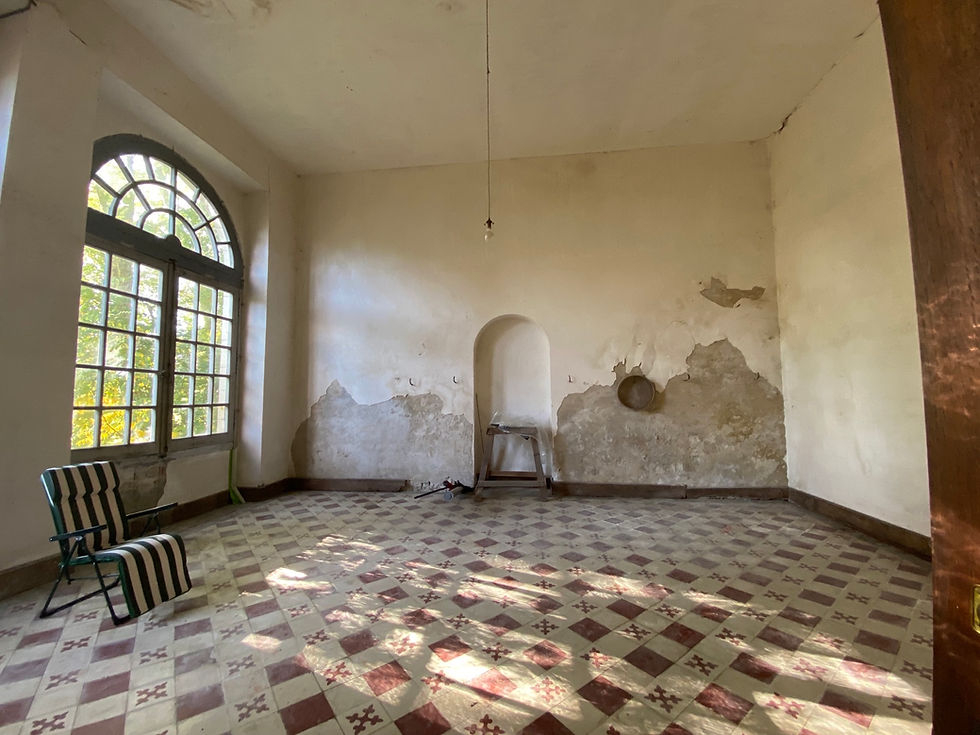The Hidden Costs of Buying Property in France (And How to Avoid Them)
- Tom Easdown
- May 21, 2025
- 3 min read
For many international buyers, purchasing property in France represents a dream fulfilled: a vineyard in Provence, a townhouse in Paris, or a stone farmhouse in the Dordogne. But for all the romance, there are many unseen challenges that turn that dream into a costly mistake.
At Meridian Grey, we regularly encounter clients who come to us after being surprised by hidden costs they weren’t prepared for. This article explores what those hidden costs are, why they occur, and how to protect yourself before you commit.

1. Structural Surprises
French homes, especially older ones, often have hidden structural issues that are not immediately visible during a viewing. Subsidence, timber decay, poor foundations, or unapproved modifications can quickly escalate costs and timelines.
Common oversights:
Damp ingress from poor roofing or drainage
Outbuildings not meeting habitation standards
Unsafe electrical or plumbing systems
Solution: Commission an independent pre-purchase survey that goes beyond what estate agents or diagnostics reports provide. A detailed architectural report will identify not just problems but solutions and cost estimates.
2. Planning Permissions and Regulatory Complexity
Renovating or expanding a French property involves navigating complex planning regulations. These vary between communes and often require engagement with the Bâtiments de France if the property lies within a protected zone.
Costs to watch:
Architectural drawings and dossiers
Mandatory ecological surveys (e.g., for bats or protected trees)
Time delays while permissions are approved or appealed
Solution: Engage a consultant familiar with local planning systems and cultural heritage laws early in the process. They can flag issues that may restrict your plans before you purchase.
3. Underestimated Renovation Budgets
Renovation in France is not inherently more expensive than in other European countries, but cost control is difficult when buyers are working in an unfamiliar system and with limited oversight.
Common issues:
Quotes that exclude VAT or contingency
Language barriers causing misunderstandings
Inflation of materials or labour due to seasonal demand
Solution: Get a comprehensive cost analysis before committing to a purchase. A good consultant will help define your renovation scope and provide realistic budgets based on current local rates.
4. Legal and Notarial Costs
In France, the notaire (notary) is responsible for executing the sale and ensuring legal correctness, but they are not a buyer’s advocate. Their role is neutral, and they do not perform due diligence on your behalf beyond basic checks.
Understanding charges:
Notarial fees (typically 6 to 8 percent for older properties)
Registration taxes
Title complications (easements, co-ownership, or land boundary disputes)
Solution: Work with an independent legal advisor or property consultant who can review all documents and represent your interests before and during the notarial process.
5. Living and Transition Costs
Many buyers fail to factor in the transitional costs between acquisition and full habitability.
Examples include:
Temporary accommodation during renovations
Storage and transport of belongings
Multiple trips for site visits or local administration
These add up quickly, particularly if the renovation extends beyond your planned timeline.
Solution: Build a realistic timeline into your planning and have a buffer for transition costs. A local project manager can dramatically reduce inefficiencies.
6. The Limits of Agent Expertise
French real estate is handled differently than in many other countries. The industry is often structured through a mix of agents immobiliers and commercial agents, many of whom are independent contractors without a formal background in construction, planning, or property law. Their focus is understandably on listings and sales, not technical assessments.
The result: Buyers are frequently given well-intentioned but incomplete guidance on renovation potential, planning constraints, or structural risks — not out of negligence, but due to the limits of their role and training.
This isn’t a failing of the individual agent, but of a system that doesn’t clearly separate marketing from due diligence. As a result, critical decisions may be made based on optimism or informal advice.
Solution: Maintain independent due diligence. Engaging a specialist consultant gives you access to detailed assessments, planning insight, and objective costings that go far beyond what any agent can be expected to provide.
Final Thought: The True Cost Is What You Don’t See
Most costly mistakes happen not after the purchase, but because of what was missed before it. Meridian Grey was created to solve this exact problem. Our pre-purchase reports and design reviews uncover the realities behind the listing, so you can make an informed, confident decision.
Thinking of buying a property in France?
Before you make an offer, speak to us about a tailored pre-purchase review that includes:
Full condition survey
Renovation feasibility and cost estimates
Planning guidance
Vision-led design recommendations




Comments